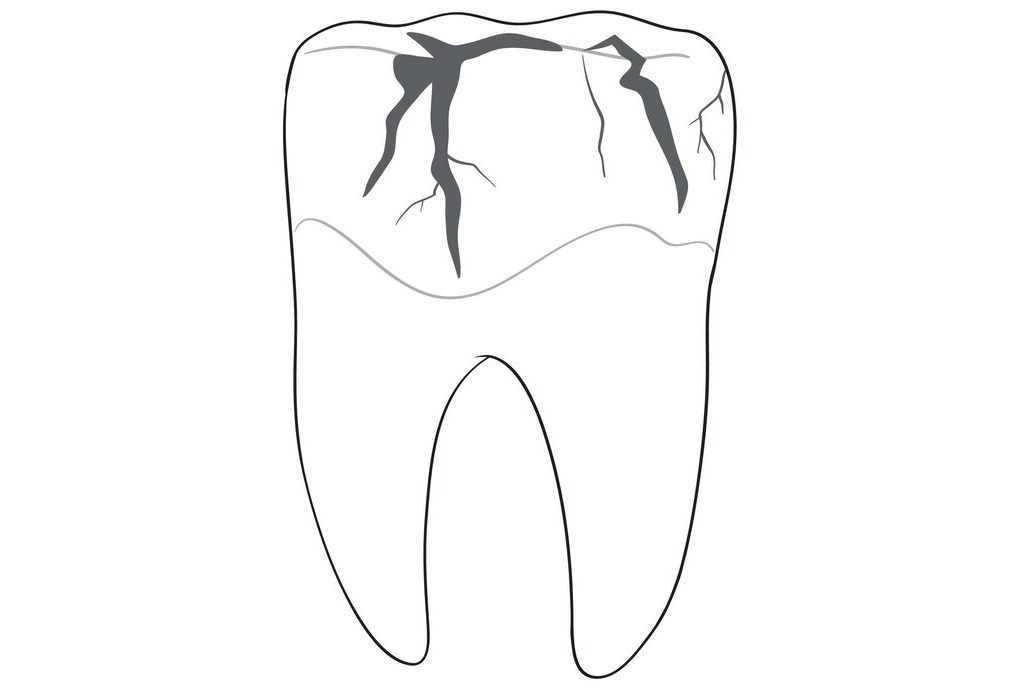Cracked teeth are a common condition that can cause discomfort or sharp pain, especially when biting or chewing food. Cracks can result from various factors, ranging from daily habits to specific physical conditions. Understanding the causes of cracked teeth and how to address them is crucial in maintaining dental health and preventing more serious issues.
Excessive Pressure
One of the main causes of cracked teeth is excessive pressure. This can occur when biting hard foods such as ice, seeds, or candy. Bad habits like teeth grinding (bruxism) also increase the risk of cracks. The risk is particularly high during sleep when the teeth are under pressure without being noticed. Additionally, accidents such as falls or being hit by hard objects can trigger cracks in the teeth. Extreme temperature changes, such as drinking cold water after consuming hot food, can cause thermal stress on the teeth, making them more susceptible to cracking.
Cracked teeth come in various forms, from small cracks that only affect the tooth enamel to deeper cracks that reach the root. Surface cracks may not cause symptoms, but deeper cracks can lead to pain, especially when chewing or consuming hot or cold food and drinks. If left untreated, cracks can worsen and lead to infections, requiring further treatment.
Visit the Dentist Immediately
To address cracked teeth, the first step is to visit a dentist for a thorough examination. The dentist will assess the type and severity of the crack and determine the appropriate treatment. In cases of small surface cracks, no special treatment may be required, but the dentist may apply filling material to reduce sensitivity. For deeper cracks, treatments such as composite fillings, veneers, or dental crowns can be used to protect the tooth and prevent further damage.
If the crack reaches the inside of the tooth near the nerve, the dentist may recommend root canal treatment to alleviate pain and prevent infection. In severe cases, where the crack splits the tooth into two parts, extraction may be necessary. Therefore, detecting cracks early is essential to avoid more severe damage.
There are several habits that can help reduce the risk of cracked teeth. Avoiding hard foods, using mouthguards for those who grind their teeth during sleep, and regularly visiting the dentist for checkups are effective ways to maintain tooth strength. By understanding the causes of cracked teeth and following the proper preventive steps, we can better maintain our dental health and avoid cracks that could disrupt daily activities.
Maintaining oral health, including preventing and addressing cracked teeth, directly contributes to physical well-being. This aligns with the Sustainable Development Goals (SDGs), particularly Goal 3. Additionally, education about the causes, prevention, and treatment of cracked teeth can raise awareness about dental health. This education is essential for helping people understand the importance of maintaining good oral health and accessing proper care, especially for prevention and early detection, which also supports SDG Goal 4.
Author: Rizky B. Hendrawan | Photo: Freepik

